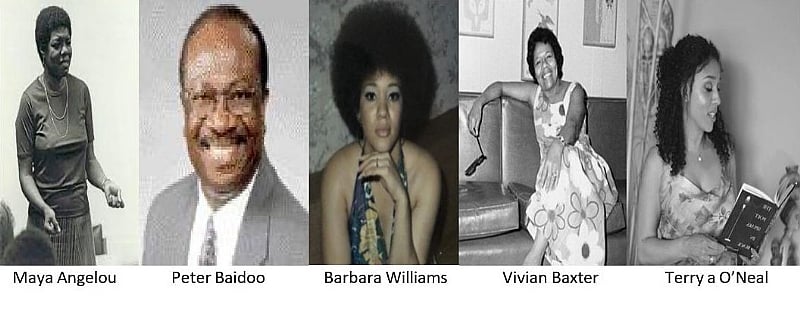A vibrant Saturday morning in Stockton, California, marked a pivotal moment in a young girl’s life, a meeting that would forever shape her aspirations and understanding of her heritage. The setting was the African Gallery, owned by Peter Kwasi Baidoo, a Ghanaian immigrant with a compelling life story. Baidoo, orphaned and raised by his uncle, had achieved remarkable success, transitioning from a Master’s in Business Administration to a career at Merck & Co. and eventually to entrepreneurship in America, all while supporting his village back in Ghana. His journey, a testament to resilience and determination, deeply resonated with the community he fostered in Stockton. While the full extent of Baidoo’s hardships remained unknown to the young girl, his presence and impact were undeniable. He had created a space where cultures converged, a home away from home for many, and it was within this vibrant hub that a significant encounter would transpire.
This encounter involved the renowned author Maya Angelou, who was scheduled for a book signing at the African Gallery. For the young girl, the anticipation was palpable. Raised in a home filled with literature and a deep appreciation for African American heritage, the girl had already been introduced to Angelou’s work by her mother, a poet herself. The evening before the book signing, the girl had delved into Angelou’s autobiography, “I Know Why the Caged Bird Sings,” guided by her mother’s patient voice. The book, a window into Angelou’s life and struggles, ignited the young girl’s imagination and sparked a connection that transcended the pages. Her mother, an admirer of Angelou’s work, hoped to share her own poetry with the celebrated author, a dream nurtured by the anticipation of the upcoming event.
The morning of the book signing arrived with a sense of newness and excitement. The young girl, along with her sisters and mother, made their way to the African Gallery, located on the second floor of the Filipino Center. The gallery, bathed in sunlight streaming through the glass doors, buzzed with quiet anticipation. Angelou’s arrival, an hour after the family’s, created a palpable shift in the atmosphere. As the young girl approached Angelou, who sat poised at the entrance, a sense of familiarity washed over her. Angelou’s image, ingrained in the girl’s mind from the book cover, came to life, radiating the same power and beauty.
The interaction between the young girl and Angelou was brief but profound. Angelou, with outstretched arm and a voice filled with genuine warmth, greeted the girl with a simple yet impactful “Hello, I’m Ms. Angelou.” Their eyes met, a silent exchange of acknowledgment and understanding. The firm handshake, unlike any the girl had experienced before, solidified the connection. In that fleeting moment, the young girl recognized in Angelou a reflection of her own future aspirations, a vision nurtured by her mother’s guidance and the powerful narratives of women like Angelou. This encounter, orchestrated by the convergence of Baidoo’s vision and Angelou’s presence, served as a catalyst for the young girl’s journey towards her own greatness.
The story highlights the profound influence of positive role models, particularly for young individuals seeking their place in the world. Baidoo, through his entrepreneurial spirit and dedication to community, created a platform for cultural exchange and celebration. His gallery became a space where individuals like Angelou could connect with their audience, inspiring future generations. Angelou, through her powerful words and unwavering presence, embodied the strength and resilience of the African American experience, igniting a spark in the young girl’s heart. This intergenerational connection, facilitated by Baidoo’s vision, underscored the importance of preserving cultural heritage and empowering future leaders.
The girl’s mother, a central figure in this narrative, fostered a love of literature and a deep appreciation for her heritage. By introducing her daughter to Angelou’s work, she provided a powerful example of female empowerment and artistic expression. This maternal guidance laid the foundation for the young girl’s aspirations, shaping her understanding of her own potential and the importance of representation. The encounter with Angelou served as a confirmation of the values instilled by her mother, a testament to the enduring power of family and the impact of positive role models in shaping one’s identity and aspirations. The memory of this encounter, etched in the young girl’s mind, would serve as a guiding force throughout her life, a constant reminder of the power of dreams and the importance of embracing one’s heritage.


